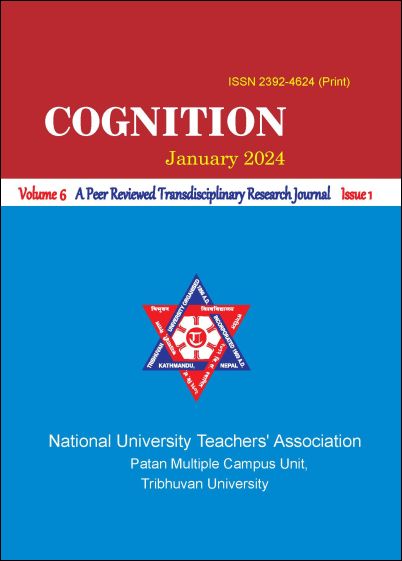Socioeconomic Dynamics in Kathmandu Valley: A World-System Perspective
DOI:
https://doi.org/10.3126/cognition.v6i1.64426Keywords:
Core, Semi-periphery, PeripheryAbstract
The socioeconomic dynamics of the Kathmandu Valley, Nepal, are analyzed through the lens of World-System Theory, providing insights into its position within the global economic hierarchy. This theoretical framework, pioneered by Immanuel Wallenstein, categorizes nations into core, semi-peripheral, and peripheral regions based on their economic and structural positions in the global system. The Kathmandu Valley's spatial distribution of economic resources illustrates core-periphery dynamics, with urban centers like Kathmandu emerging as core areas boasting robust economic activities, while peripheral regions face marginalization and limited access to economic opportunities. Disparities in infrastructure development further highlight these dynamics, as core areas benefit from superior infrastructure, while peripheral regions contend with limited development, exacerbating urban-rural inequalities. Migration patterns within the Kathmandu Valley reflect responses to economic imbalances perpetuated by the global capitalist system, with rural residents migrating to urban centers in search of opportunities, straining urban infrastructure and widening disparities. Additionally, globalization's impact on cultural dynamics contributes to the homogenization of cultures, eroding traditional practices and identities in favor of Western consumer culture. Social stratification within Nepali society is reinforced by the hierarchical structure of the world-system, perpetuating cycles of privilege and disadvantage. Understanding these dynamics through World-System Theory highlights the interconnectedness of global and local processes, emphasizing the need for systemic change to address disparities and foster equitable development in the Kathmandu Valley.




